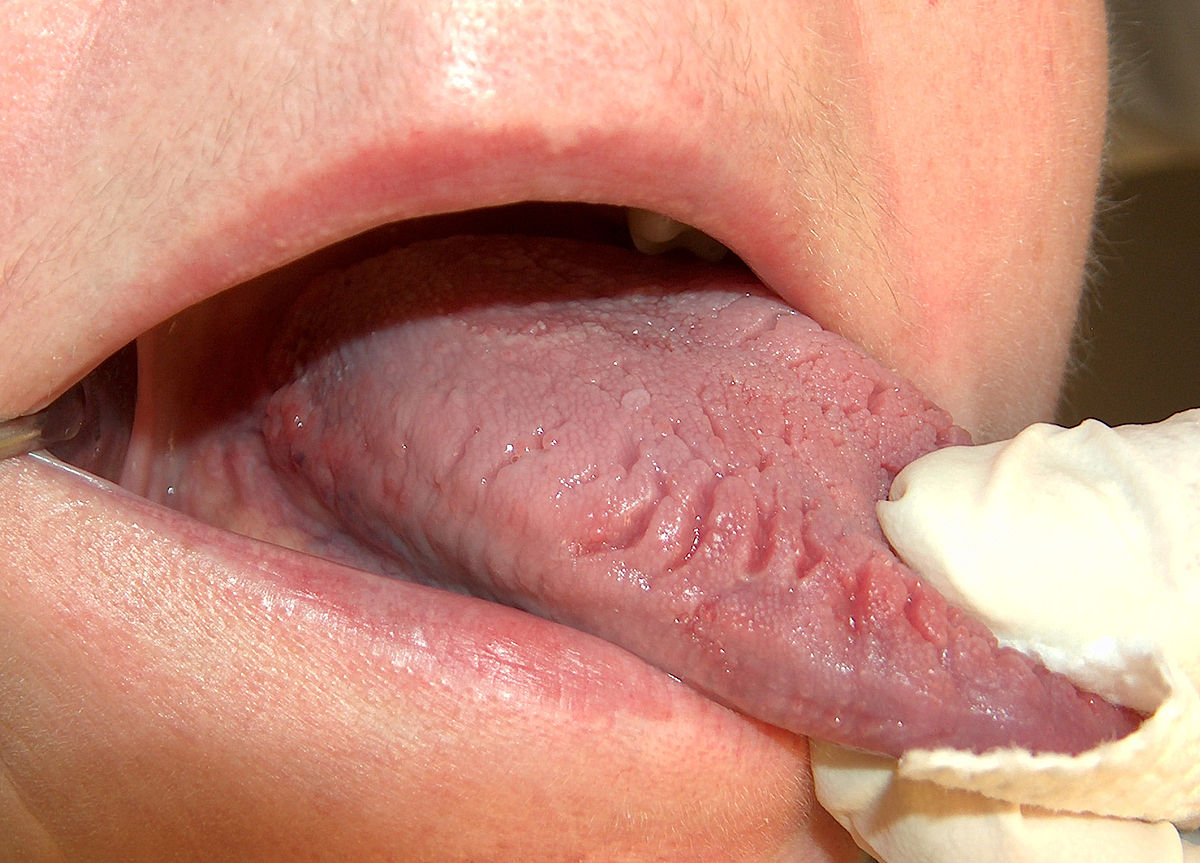Fissured tongue, also known as “Lingua plicata” or “Scrotal Tongue”, is a common condition that affects about 2-5% of the population. Fissured tongue is characterized by one or more deep grooves or cracks on the tongue on the surface of the tongue. While it’s generally harmless, it can indicate an underlying medical condition that needs attention. In this post, we’ll talk about what fissured tongue is, what causes it, how to diagnose it, and how to treat it.
What is Fissured Tongue?
Fissured tongue is a condition that causes deep grooves or furrows on the surface of the tongue. These grooves can vary in size and shape, and some people may have multiple grooves while others have only one. The exact cause of fissured tongue is unknown, but certain factors can increase the likelihood of developing this condition.
Causes of Fissured Tongue
Genetics, ageing, nutritional deficiencies, and certain medical conditions such as Down syndrome, psoriasis, Sjogren’s syndrome, and geographic tongue have been linked to the fissured tongue. While these factors may increase the risk of developing fissured tongue, many people with the condition have no identifiable cause.
Symptoms of Fissured Tongue
In most cases, the fissured tongue does not cause any symptoms. However, some people may experience discomfort or sensitivity in their tongue, especially when eating hot or spicy foods. Food particles can get trapped in the grooves. This stuck food debris can be a reason for bad breath.
Diagnosing Fissured Tongue
If you suspect you have fissured tongue, your dentist or doctor can usually diagnose it during a routine exam. They will examine your tongue and ask about any symptoms you may be experiencing. In some cases, they may order additional tests, such as blood work or a biopsy, to rule out any underlying medical conditions.
It’s important to note that fissured tongue can sometimes be mistaken for other conditions, such as oral cancer. Therefore, if you have any concerns about your oral health, it’s essential to see your dentist or doctor as soon as possible.
Treating Fissured Tongue
In general fissured tongue is harmless and does not require treatment, your dentist may recommend some simple steps to alleviate any symptoms you may be experiencing. These steps may include maintaining good oral hygiene, using a tongue scraper to remove debris from the grooves, increasing nutrient intake, and treating any underlying medical conditions that may be contributing to your condition.
In some cases, people with fissured tongue may experience inflammation or infection in the grooves, which can cause discomfort or pain. If this occurs, your dentist or doctor may prescribe antibiotics or antifungal medication to treat the infection.
Preventing Fissured Tongue
While the exact cause of fissured tongue is unknown, there are several steps you can take to reduce your risk of developing this condition. These steps include:
- Maintaining good oral hygiene: Brush your teeth at least twice a day and floss once a day to remove food particles and bacteria from your mouth.
- Limiting spicy or acidic foods: These foods can irritate the tongue and make grooves more noticeable.
- Quitting smoking: Smoking can contribute to a dry mouth, which can increase the risk of developing fissured tongue.
- Eating a healthy diet: A diet rich in vitamins and minerals can help promote overall oral health.
- Treating underlying medical conditions: If you have a medical condition that’s linked to fissured tongue, such as psoriasis or Down syndrome, it’s important to work with your doctor to manage your symptoms and reduce your risk of developing fissured tongue.
When to See a Doctor
If you notice deep grooves or furrows on your tongue, it’s essential to see your dentist or doctor for an evaluation. While fissured tongue is generally harmless, it can indicate an underlying medical condition that needs attention. Your dentist or doctor can help determine the cause of your fissured tongue and recommend appropriate treatment if necessary.
In addition, if you experience any discomfort or pain in your tongue or mouth, it’s important to seek medical attention. These symptoms may indicate an infection or inflammation in the grooves of your tongue, which can be treated with medication.
Endnote on Fissured Tongue
Fissured tongue is a common condition that affects many people. While it’s generally harmless, it can indicate an underlying medical condition that needs attention. If you notice deep grooves or furrows on your tongue or experience any discomfort or pain, it’s important to see your dentist or doctor for an evaluation. Maintaining good oral hygiene, eating a healthy diet, and treating underlying medical conditions can help reduce your risk of developing fissured tongue. With proper care and attention, you can keep your tongue and mouth healthy and free from discomfort.
Fissured tongue: Causes and treatment

